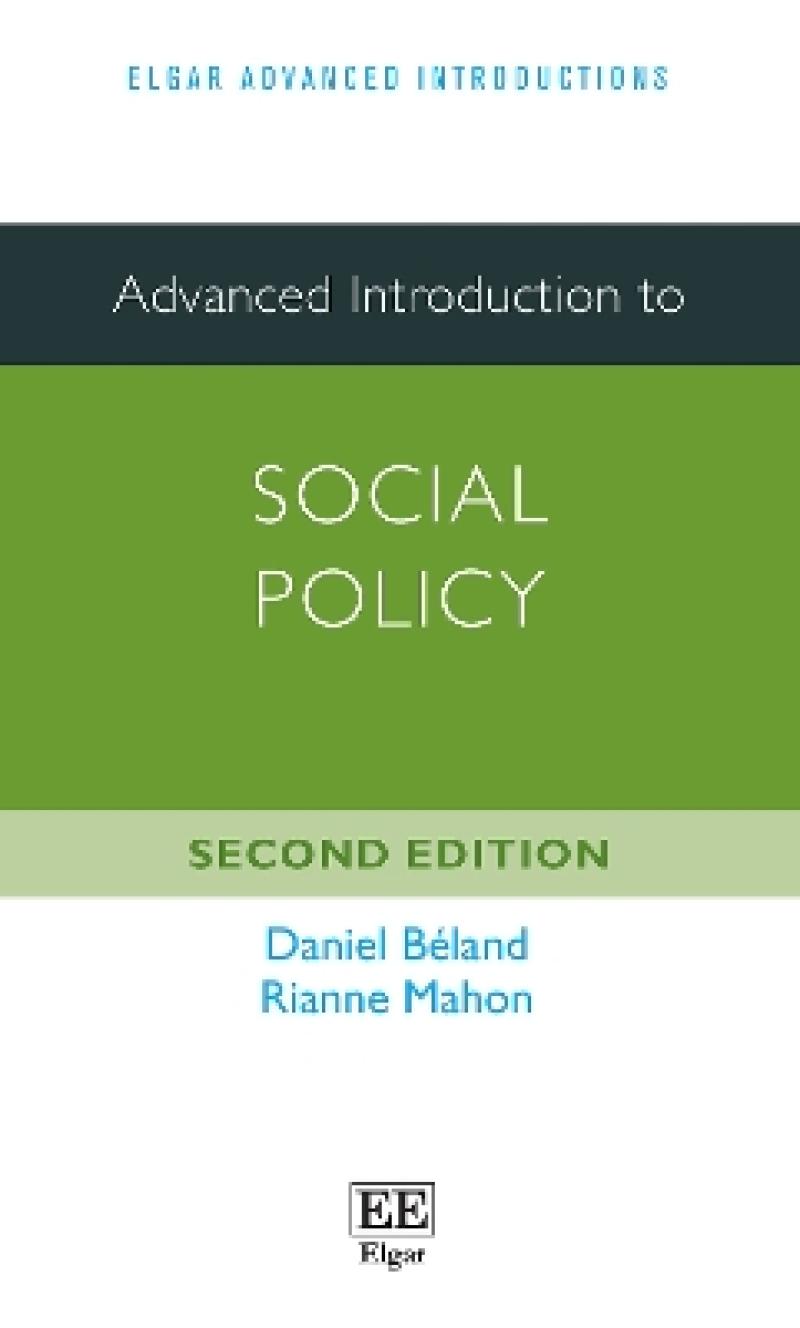<i>‘In this timely second edition, Daniel Béland and Rianne Mahon bring new contexts and debates to their outstanding foundational social policy text. These include global crises, wars, and global social governance. It remains an admirably succinct and clear yet comprehensive text, perfect for undergraduate and postgraduate students of social policy and related subjects. The authors combine classic social policy concepts with key contemporary theories and issues. They show how political, social, and economic contexts influence shifts in thinking and the movement of ideas. The book importantly references the significance of social policies of different global regions. It will continue to appeal to a wide international audience.’</i>
- Fiona Williams, University of Leeds, UK,
<i>‘This book delivers a superb concise introduction to social policy. With a wonderful flow and a truly global perspective, it draws from the finest of the classics and contemporary research to address the ideas and societal transformations that have deeply changed the face of social policy. Millions of people on the move, the travel of ideas, intense statecrat, critical feminist voices across the globe, all make their way into the novel contribution Béland and Mahon make to the teaching of social policy. In addition to refining arguments and including new material regarding subjects already present in the first edition, this new edition addresses the consequences of authoritarian parties and movements on social policy. It also elaborates on the role of war and crises like pandemics and climate change in welfare state building. As such, this improved second edition is even more of a must have on social policy courses in Latin America and the global South than the first one.’</i>
- Juliana Martínez Franzoni, Universidad de Costa Rica,
<i>‘Daniel Béland and Rianne Mahon provide advanced students with an excellent overview of systems of social provision and regulation worldwide, notable for its theoretical sophistication and compelling empirical materials. The authors engage with the practical and analytic challenges to welfare states, and their analysts, posed by globalization and global governance, increased migration, transformations in household forms and gender relations, and shifting racial/ethnic dynamics. Moreover, the book is well-grounded in the rich comparative traditions of welfare studies while also attending to innovative theoretical trends.’</i>
- Ann Shola Orloff, Northwestern University, US,
Extensively updated, this second edition of the Advanced Introduction to Social Policy provides a concise overview of the field that takes newer realities into account as well as taking insights from the traditional social policy canon. Daniel Béland and Rianne Mahon draw on both classic and contemporary theories to illuminate the broad processes that are putting pressure on existing social policy arrangements and raising new research questions.
Key Features:
- Assesses the social policy implications of changing gender relations and the increasing salience of ethnic diversity
- Focuses on both the advanced industrial world and the growing significance of the Global South as a site of social policy innovation
- Provides a global perspective on social policy that features systematic attention to transnational actors, moving beyond the methodological nationalism that has traditionally marked the field
Presenting a lucid and up-to-date overview of comparative and global social policy, this thoroughly revised second edition will prove vital to researchers, university students, and university instructors of social policy, political science, sociology, public policy, and social work.
